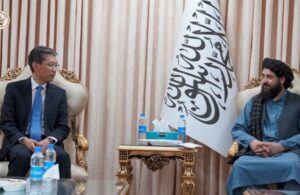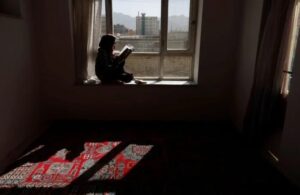KABUL (SW) – The Islamic Emirate spokesman has reiterated that the current government in Afghanistan is inclusive and has popular support.
This is in response to the joint statement of the foreign ministers of Afghanistan’s neighboring countries, which was broadcast at the end of the two-day meeting in Samarkand, in which the formation of an inclusive government in Afghanistan and the elimination of the security concerns of the countries in the region were emphasized.
Bilal Karimi, one of the deputy spokespersons of the Islamic Emirate, told Salam Watandar that the discussion of the government is an internal discussion, and likewise, there is no security threat from Afghanistan to the countries of the region. According to Mr. Karimi, peace, stability and security are guaranteed in Afghanistan. “If there is an example of a system that is completely inclusive, we will understand which system is meant by inclusive. In Afghanistan, peace, stability and security are ensured, and there is no movement that threatens foreign countries, nor can they provide documents and evidence in this case.”
In the joint statement of the foreign ministers of Afghanistan’s neighboring countries, which was broadcast on the website of the Iranian Ministry of Foreign Affairs yesterday, they expressed concern about terrorist threats in Afghanistan. Likewise, the Islamic Emirate has been asked to respect the fundamental rights of Afghan citizens, including the rights of all ethnic groups, women and children.
The statement said: “The parties emphasized their commitment to the development of Afghanistan as a country without terrorist threats and drug trafficking. The parties emphasized the importance of creating an inclusive and comprehensive governance system in Afghanistan that reflects the interests of all sections of this society. The parties noted that all terrorist groups, including the Islamic State of Iraq and the Levant (ISIS), al-Qaeda, the Islamic Movement of East Turkestan, the Pakistan Tehreek-e-Taliban, the Balochistan Liberation Army and other terrorist organizations based in Afghanistan, are still a serious threat to the security of the region and the world.”
Political experts, however, doubting the effectiveness of the Samarkand meeting, say that this meeting was held only because of the security concerns of the countries in the region, and it will not bring any change in the political and human rights situation of Afghanistan.
Seyed Zia Hosseini, a political activist, says that because China and Central Asia are in the neighborhood of Afghanistan and are affected by the situation in this country, they are trying to manage the issue of Afghanistan in some way. “Afghanistan is in a security environment that can affect both China and Central Asia. Because any bad thing that happens in Afghanistan affects both their interests and the security and political issues of the countries in the region.”
Seyyed Hayatullah Hayat, professor at a university, said that considering the past relationship of the Islamic Emirate with the countries surrounding Afghanistan and holding similar meetings and repeating demands, there is not much hope for a change in the approach of the Afghan government. “This meeting was not initiated by Afghanistan; Because they wanted to share their concerns with the caretaker government more than they wanted to hear the problems of the Afghan people. There is no hope for the fruitfulness of this meeting.”
ENDS






